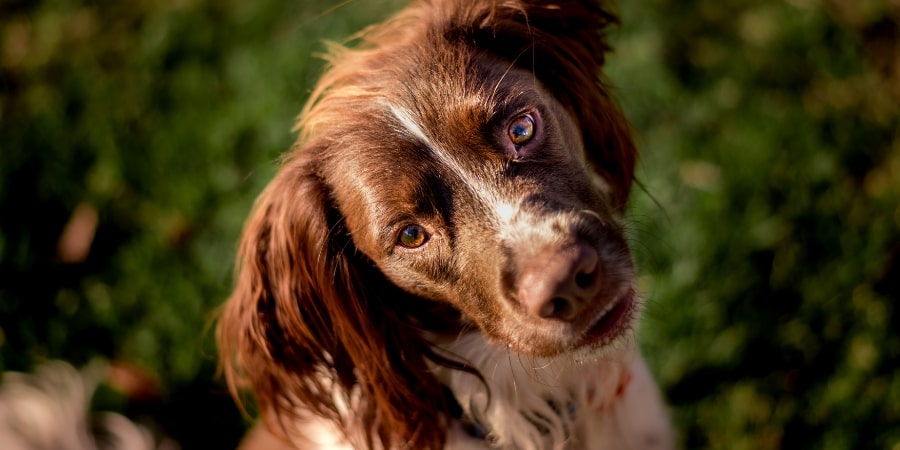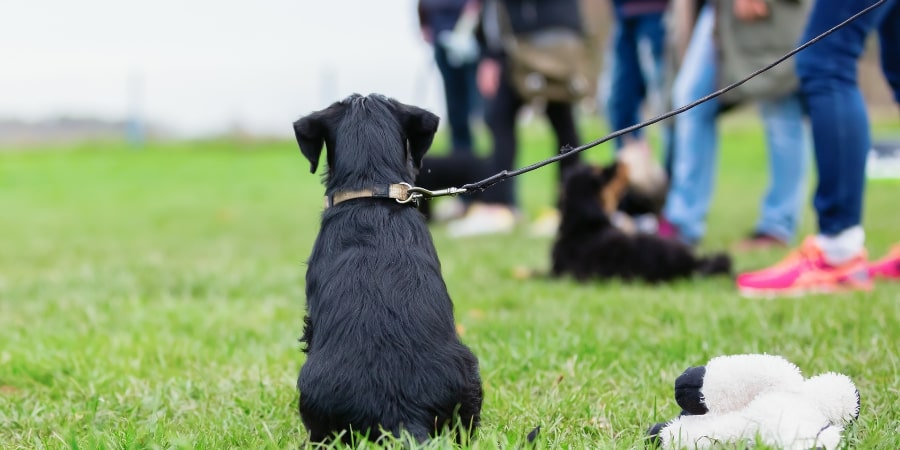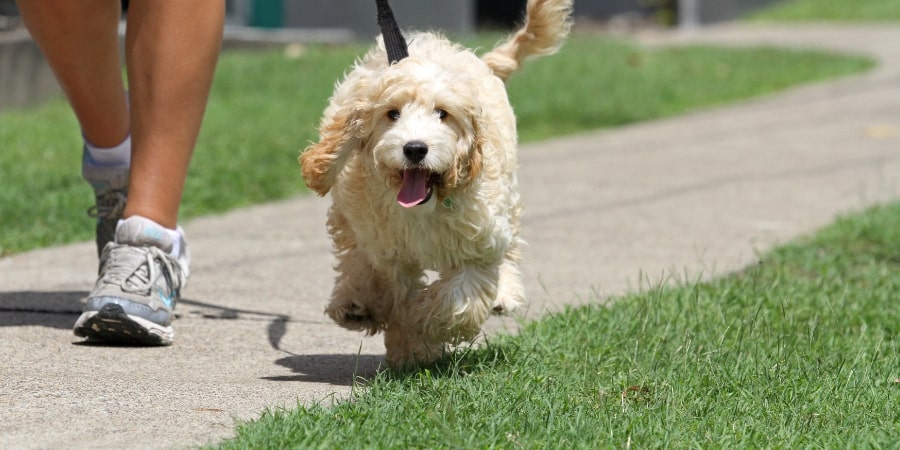Over one year ago we were urged to stay at home as the UK went into lockdown. Many people felt isolated and pets became an even more important source of company. And for some, this felt like the perfect time to welcome a new puppy into their lives.
Puppies that were born under the first set of pandemic restrictions will now be 8-12 months old. They will be approaching what is usually the adolescent (or teenage) phase of their lives – when some owners may notice a change in their dog’s behaviour (often not for the better)!
On top of that, dogs that have grown up during the pandemic have only lived with lockdown restrictions, so may struggle to adjust as we go back to “normal” lifestyles.
Here’s our vets’ advice on how to help your pooch as they enter adolescence and get used to life post-lockdown.
Signs of dog adolescence

As your pup grows up and reaches adolescence, their behaviour may become more challenging, just like some human teens. Many owners panic at this age, or think their dog is going to show difficult behaviour for life. But it’s just a stage of development for many dogs which requires patience and good training. Here are some signs that your dog has reached adolescence:
- They're around 8-13 months old (dependent on breed)
- They've stopped listening to you and following commands (despite training them!)
- Humping more regularly
- Showing signs of anxiety or nervousness
- Becoming more territorial
- Change in social behaviour e.g. becoming more aggressive or becoming less social.
Find out more about the signs of dog adolescence.
How to get your puppy used to life after lockdown

Dogs that were born over the past year have only ever experienced life in lockdown. This means they're probably used to:
- Spending lots of time with their owners
- Less traffic on the roads
- Only being around people from their household
- Outdoor public spaces (unlike shops or pubs).
A puppy's socialisation period helps them to become confident, friendly dogs through new positive experiences as they grow and explore the world around them. However, Covid-19 restrictions have changed the way we're able to socialise, which has made it difficult to give pups a full range of new experiences around other people and pets.
If you have an adolescent dog, it's really important that they are gradually introduced to new situations and places. Remember things that seem normal to us may be brand new to many dogs that have grown up in lockdown. If there are too many changes too quickly, your dog can become nervous or develop problem behaviours. In more extreme cases, dogs could develop fears and phobias which can have a lasting impact on their quality of life.
The key to preventing problems is preparation. Our dogs can still learn about new things once they're older, but it's even more important to take it slow and give lots of rewards. Start building up new experiences really slowly, for example going into a pub and then leaving after five minutes or taking a short trip on the bus. Keep things positive with lots of praise treats or a toy.
Remember: it’s important to make sure dogs’ flea and worming treatments are up to date, especially if they’re starting to explore new areas and mix with other pets.
How to improve your adolescent dog's behaviour

As your dog reaches adolescence and Covid-19 restrictions slowly ease, you can help improve your dog's behaviour by:
- Training: Continue with consistent, positive reward-based training techniques to help your pooch understand what behaviour is expected. By rewarding your dog for good behaviour, they’ll soon understand how to act and you’ll have an even stronger bond with your four-legged friend.
- Neutering: Consider neutering your pooch if their behaviour is hormonally driven. Not only can neutering help with some challenging behaviours, but it can also prevent unplanned pups and some serious health issues. The right age to neuter will depend on your dog’s sex, breed and temperament. Speak to your vet about whether neutering could help and when could be the right time to neuter your dog.
- Gradual routine changes: Make changes to your dog’s routine slowly. For instance, if you’re returning to work and your dog is used to having you around, try to slowly increase the amount of time you spend apart so it’s not a big change. Remember: dogs should not be left alone longer than four hours!
- Behaviourists: If you’re really struggling with your dog’s behaviour, get your dog checked by your vet and seek help from a certified behaviourist. They’re trained to help support you and your pet, and will help to improve your dog’s behaviour with proven techniques.
